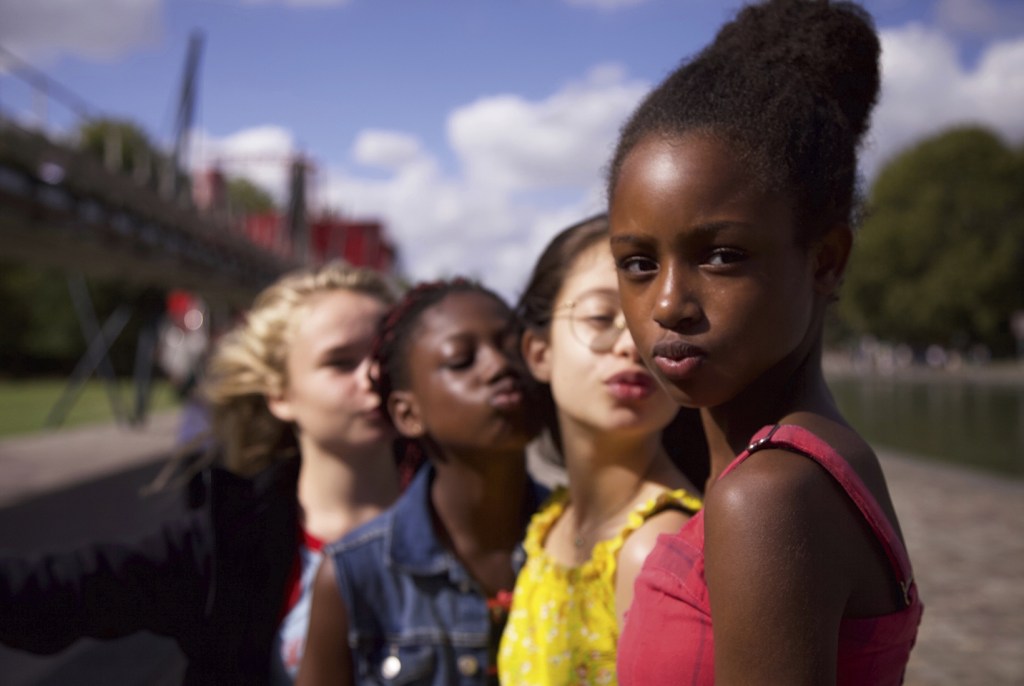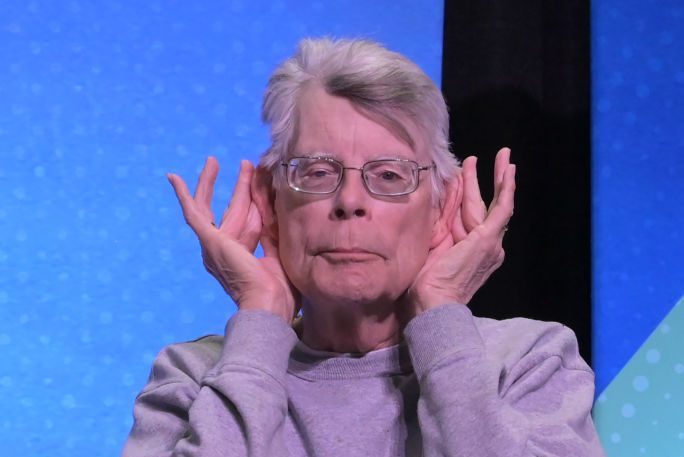Cuties is the subject of a moral panic and a hashtag #CancelNetflix. It tells the story of Amy (Fathia Youssouf), an 11-year-old Franco-Senegalese girl living in Paris, who learns that her father is taking a second wife. (Polygamy is widespread in west Africa, but you wouldn’t know it from mainstream cinema. You wouldn’t know much from mainstream cinema.) The film deals with the lead-up to the wedding. Amy watches the suffering of her mother (the superb Maïmouna Gueye), who must prepare the house for the interloper, scattering cushions over the marital bed, and the bombast of her small brother, who eats cereal and is learning to be a misogynist. (I suspect the baby will get there too, in the end. But he will have to learn to talk first.) There is also a terrifying Auntie (Mbissine Thérèse Diop) who holds the patriarchy up, almost by herself.
This agony brings Amy to a crisis. Realizing her powerlessness — she cannot comfort her mother but must instead sit through Auntie’s lectures (‘Women must be pious because in hell they will be much more numerous than men will be; we must remain modest; we must obey our husbands’) — she sexualizes herself. This is not abnormal when a family ruptures: an unhappy child will wish themselves an adult for they imagine they will be able to bear the pain that way. This being 2020, Amy learns sexuality from the internet through a smartphone and joins a dance troupe with other lonely, angry girls: she gurns, licks her fingers and ‘twerks’, in a ghastly parody of an adult woman. It is pitiable, and it is normal. When Humbert Humbert wrote of Lolita, ‘Reader, she seduced me,’ it was plausible, and that is why it was shocking. Lolita is the diminutive of Dolores. It means ‘sorrows’, and that is deliberate.
[special_offer]
These few scenes — not more than a few minutes long — are the center of the moral panic of Cuties (undoubtedly a terrible title), which began in America. The Texan senator Ted Cruz would not have Amy dance — what is freedom to her is obscenity to him, and it is his response that matters, even though he has not seen the film. The panic has crossed the ocean: people are speaking of what pedophiles do and don’t like, as if they have pedophiles to hand offering film criticism. It is hard not to think of Brass Eye’s 2001 ‘Paedogeddon’ episode, which was a masterpiece and caused the series to be canceled, and showed ‘security footage of a paedophile disguised as a school’. I would be surprised if pedophiles watched French language films by female Franco-Senegalese directors (Maïmouna Doucouré) about the misery of female Senegalese immigrants when they can watch child beauty pageants (the Universal Royalty Beauty Pageant is open to babies and based in Texas) — or criminal pornography. But what do I know?
The scenes in which Amy pretends to be a sexually aware woman — apparently filmed with great sensitivity — are painful to watch, and they should be, not because she is aping mature sexuality, but because she is in such pain that she feels she needs to. The inappropriate sexualization of children is not a comfortable thing to see, and it shouldn’t be, but it is worth asking, amid the moral panic: what is cinema for? Children walk the fashion runways of Paris, grimacing blankly. They are considered the feminine ideal by this industry and, therefore, the world; but fashion has no self-knowledge. It is not in its interests.
Eventually Amy is given succor — she is heard — and she turns back into a child. I can’t remember a film about a female child of this age so pitiable, or true. All the warnings are here in Cuties, if you can hear them: it is interesting that those most panicked by its themes cannot and prefer a thoughtless, or cynical, projection of their own terrors.
This article was originally published in The Spectator’s UK magazine. Subscribe to the US edition here.

























